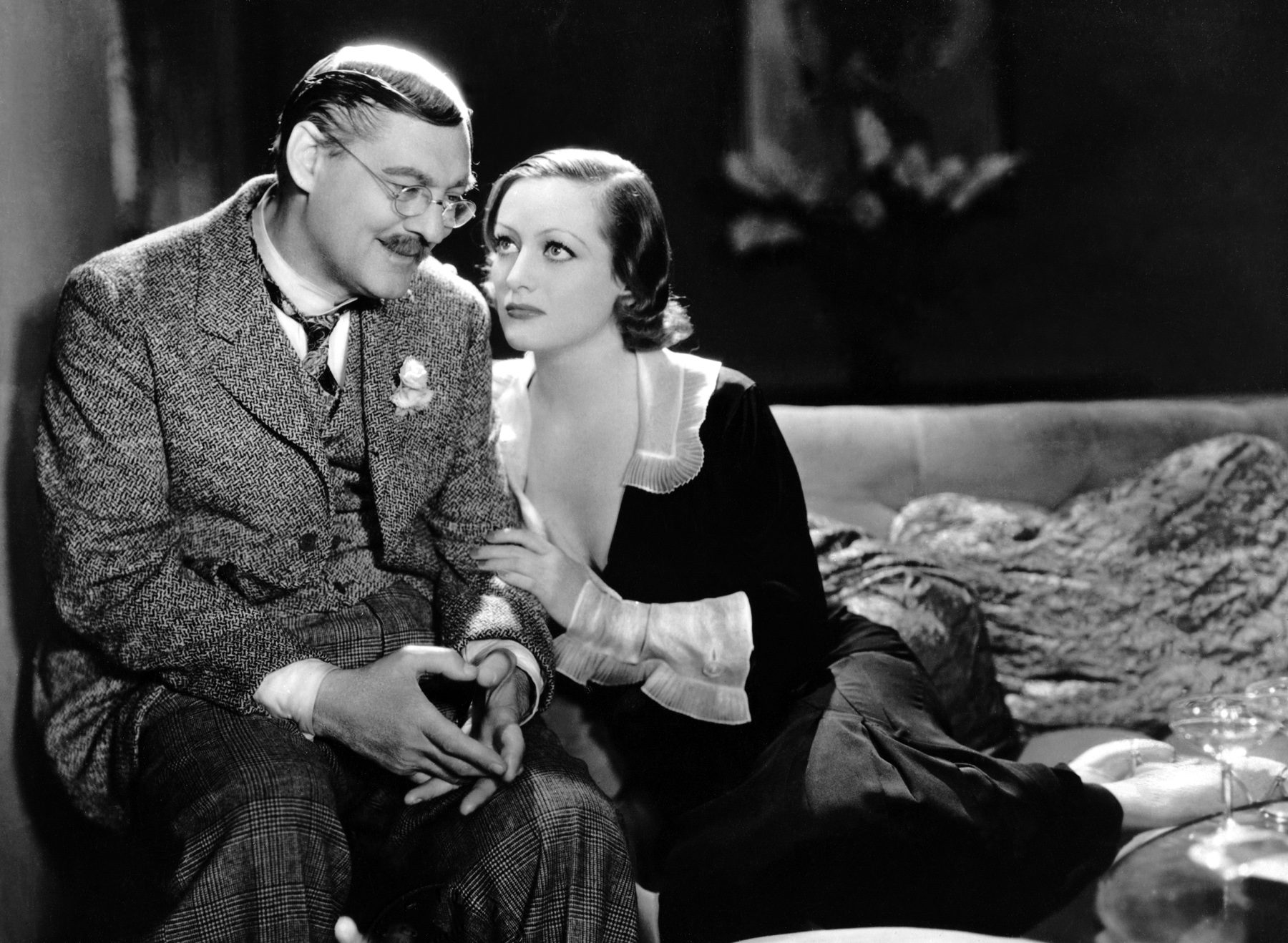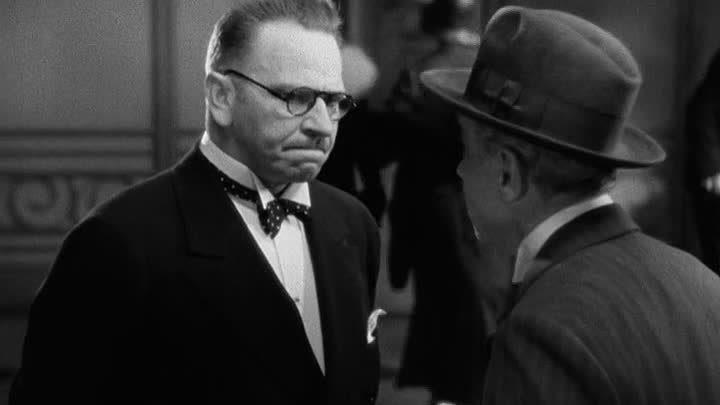Best Picture: Grand Hotel
The Other Nominees: Arrowsmith; Bad Girl; The Champ; Five Star Final; One Hour with You; Shanghai Express; The Smiling Lieutenant
It’s easy to see the appeal of Grand Hotel, and easy to see why, in the Academy’s infancy, it won Best Picture (to date, it is the only film to win the award while being nominated for no other Oscars). The film boasts an incredible cast, probably the most star-studded ensemble ever put on celluloid up to that point, and the poster screams this fact while telling you nothing about the film itself. Who, in the 1930s, could resist a film boasting Greta Garbo, Joan Crawford, Wallace Beery, Lionel Barrymore, and John Barrymore? What a fun trifle that promises to be! The skies were dark, because all of the stars were in Grand Hotel. And don’t get me wrong, it’s a fun movie at times, and the performances are solid, but this movie has no idea what the hell it’s supposed to be. I’m hard-pressed to think of a starker distinction between tone and material.
The film begins charmingly enough, evoking the old-world romance of modern films like Grand Budapest Hotel (but without any of that film’s melancholy). There’s a promise in the air, of lives colliding in one of the most glamorous locations in Berlin (“All the best people stay here!” one character crows). Director Edmund Goulding stages it like the play it’s based on, with a crowd of extras in the background of seemingly every shot, adding verisimilitude to the setting (even if the extras are animated to the point that I wondered if they were directed by Harold Zoid). The characters, impressively, have not been Americanized, and we meet Preysing (Beery), Baron von Geigern (Barrymore), Kringelein (the other Barrymore), Grusinskaya (Garbo), and Flaemmchen (Crawford). The film does right by all of its actors, and it’s easy to see why, at the time, these were some of the biggest names in Hollywood. Grand Hotel attempts to marry the glamour of its cast with what it thinks is its frolicsome plot, but the problem with Grand Hotel, and with Goulding’s otherwise capable direction, is that it fundamentally misunderstands its script.
The characters in this film are all desperate people at low points in their lives. Preysing is on the verge of seeing his business collapse. Kringelein is dying and has come to the hotel to live out his final days in luxury. Von Geigern is a baron but still penniless and has resorted to petty theft. Flaemmchen, a stenographer, can’t quite hide her loneliness behind her quips. And Grusinskaya is a dancer at the nadir of her career, having just performed for a half-empty house. But Grand Hotel seems to think it can gloss over this, to force its story towards frivolity.
The least effective choice Goulding makes is to set almost every single scene to jaunty string music, and at times – during scenes of banter or flirting – this actually works. The film, during these effective sequences, seems like a dance, or like a musical with the songs replaced with well-delivered dialogue (the cast really helps sell this movie, guys). When this film doesn’t work, it seems like a sad attempt to turn a tragedy into a farce, and at times it downright sabotages certain scenes. Kringelein drunkenly confronts Preysing, his boss, who turns out not to know him and goes on to insult him. It should be the emotional catharsis of the film – Grand Hotel‘s most sympathetic character versus its most outright villainous – but it instead feels like an extended, failed, comic set piece. That’s what happens when you pair lighthearted music with heavy-handed drama.
Grand Hotel is not without its charms, though. This is a dynamite cast, and they all get the chance to interact, making the most of their scenes together (they were all concerned with being upstaged, so maybe that explains why they’re all acting their asses off). Barrymore excels at playing Baron von Geigern, lending a genuine, tangible air of sadness to the character. “I haven’t any friends,” he confesses to Kringelein at one point, in the film’s saddest line. Later, von Geigern and Flaemmchen strike up a flirtation, and Crawford’s performance is revelatory. She’s funny, self-assured, and sexy, and she makes it all look so damn easy. She mines the most potential out of simple gestures, like the arch of her eyebrow, or the tilt of her head. She gets an incredible amount of comedic mileage out of the word “Moreover,” as she tries prompting Preysing to get back to his dictation and stop his ineffectual flirting. Garbo handles herself nicely, and speaks with a solid Russian accent, but she’s too young for the role; she should be playing an ingenue, not a prima donna (she worried that, at 27, she wasn’t old enough to play Grusinskaya; she was right).
If the entirety of Grand Hotel were like this, I’d have much higher praise for the film. Episodic films built on vignettes are not inherently a bad thing; Pulp Fiction is arguably one of these, along with Magnolia, and Short Cuts is a stone-cold masterpiece with disparate storylines that don’t converge until the last half hour of its three-hour runtime. But Grand Hotel is so determined to be a comedy that it doesn’t know that it’s much darker than that. If you remove the musical fluff under almost every scene, there’s a decent Agatha Christie novel or 1990s Robert Altman film hidden underneath. The story doesn’t have to change, and neither do the characters. These lives can still collide, in their messy, unpredictable ways, but the film puts such a happy face on everything that it comes off not as lighthearted but as oblivious.
This is a long way to say that in the film’s climax, Preysing beats von Geigern to death with a telephone, and Grand Hotel is absolutely unequipped to handle the tonal shift. (Think of how well Altman handled the suddenly violent climaxes of Short Cuts or Nashville and you’ll see why he’s such a perfect fit for this material. Hell, think of the sudden violence in The Player or McCabe & Mrs. Miller for more examples.) It doesn’t completely derail the films, because it leads to a couple good scenes, such as Preysing forced to throw himself on Kringelein’s mercy, or Grusinskaya calling von Geigern’s room; we only see his dog Adolphus looking around miserably, wondering where his owner is.
Grand Hotel doesn’t feel like a failure, or a disaster, and it’s leagues better than our last entry in Every Best Picture, the execrable Cimarron. More than anything, this film feels like a missed opportunity. Yes, the cast is great, and yes, the play it’s based on was a huge hit on Broadway, but if we learn anything from Grand Hotel it’s that good material isn’t enough. You can build a ship out of fine timber, but if you have a shitty captain you’re still going to crash.
Previously: Cimarron
Next Up: Cavalcade



